What is the course about?
The training is a classroom based three day course (with assessments and practical exercises) and allows plenty of opportunity for discussion. The industry group who developed this course includes representatives of the main broadcasters, BECTU, Unite, Skillset, several large electrical suppliers/rental companies, freelance electricians, PACT (Indie Sector) and one of the authors of BS7909.
Productions have to engage someone who has completed the course and passed the assessment as the person responsible for the electrical installation or, as part of that personβs crew.
Where can I find out more?
This course highlights the legal responsibilities of those working with power and uses ordinary scenarios and situations to explain common hazards and how the associated Standards can be used to mitigate the risks. Passing this course provides evidence that you understand the principles behind providing an electrically safe working environment and what needs to be done to achieve one.
You can find out more about the content and requirements for the course from Bectu - course details .
It is worth noting that 100% of the Gaffers and Best Boys whoβve attended so far would recommend it to their colleagues.
How can I apply?
Please be aware that you do need to have an understanding of electrical principles in order to be successful. Therefore, anyone considering participating will be expected to understand the technical content in this course. You will need to be comfortable with basic electrical theory such as using Ohms Law and working out power loading. It does NOT teach basic electrical theory.
It is aimed at existing practitioners or those newly electrically qualified by allied routes (such as 17th or 18th edition qualifications or electrical NVQs), and will enable candidates to demonstrate an understanding of what is required to practice safely with temporary electrical systems.
Recommended links
ΒιΆΉΤΌΕΔ electrical safety topics
-
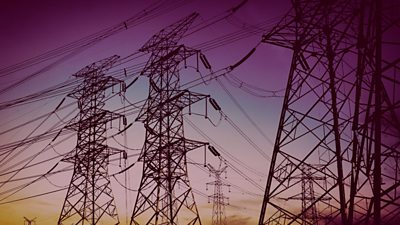
Electrical safety homepage
A selection of guidance documents and general advice in relation to Electrical Safety in ΒιΆΉΤΌΕΔ premises, on productions and events. -

ΒιΆΉΤΌΕΔ policies for electrical safety
ΒιΆΉΤΌΕΔ policies detailing its overarching approach to the management of electrical safety. -

ΒιΆΉΤΌΕΔ electrical safety guidance documents
Summary of ΒιΆΉΤΌΕΔ electrical guidance (links within document titles) -
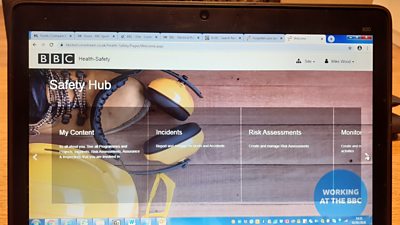
Electrical risk assessments and reporting of incidents
This section will help those who need to do a risk assessment where electricity is being used. It also gives guidance on reporting requirements for any electrically-related incident. -
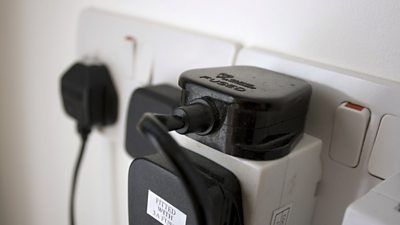
Electrical safety in ΒιΆΉΤΌΕΔ Premises
General guidance on use of electricity and electrical equipment when working in ΒιΆΉΤΌΕΔ Premises. -
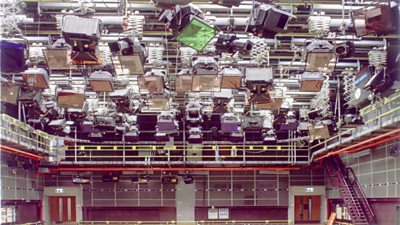
Electrical safety in Studios
A straightforward guide to electrical safety management in studios and similar locations. -
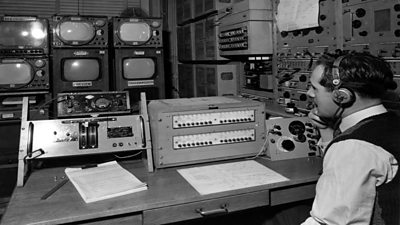
Safety of electrical equipment and appliances
Requirements for electrical safety of electrical equipment and appliances (βPAT testingβ). -
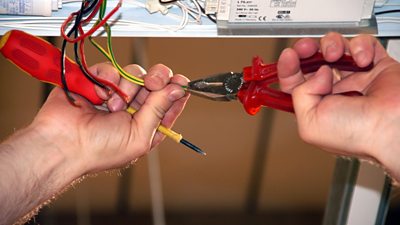
Electrical competency and Part P requirements
Guidance on what to look for when employing contractors or freelancers to do electrical work. -
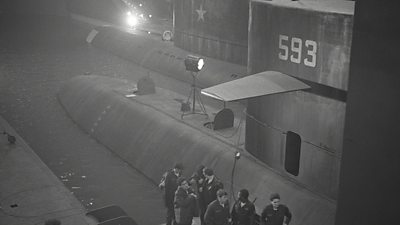
Electrical safety requirements for Production Managers
Find out what you should know and what measures should be put in place for your production. -

Bringing your own equipment to work and contributorβs equipment
Basic guidance on the safe and appropriate use of personal electrical equipment whilst at work and requirements. -
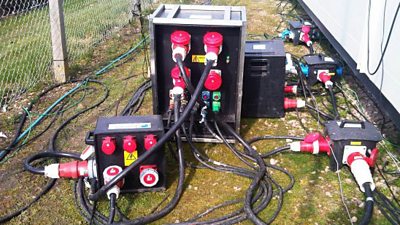
Temporary electrical systems and BS 7909
Requirements for electrical safety management in accordance with BS 7909 for all temporary electrical systems. -

Small and Simple Temporary Electrical Systems
Guidance to help understand the requirements for simple temporary electrical systems such as interviews or photo shoots for example. -
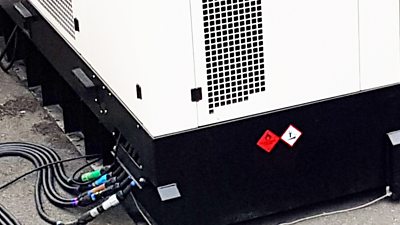
Generators
Guidance on the use of temporary generators including the application of earth electrodes. -
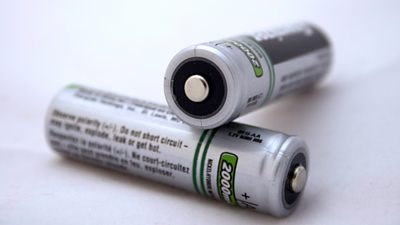
Batteries
Guidance on the safe use and storage of batteries. -
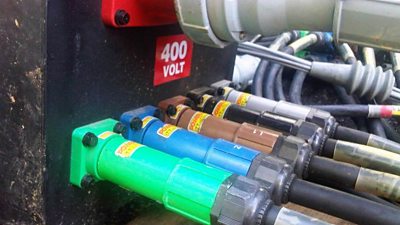
Certificate in Temporary Electrical Systems
An electrical safety training course designed to ensure those working with electricity in temporary distribution systems on productions can comply with BS 7909 and the relevant parts of BS 7671. -
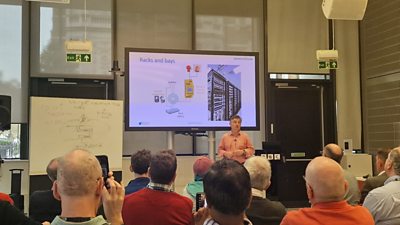 Electrical Principles Workshop to harmonise the approach to health and safety management on electricity across all areas.
Electrical Principles Workshop to harmonise the approach to health and safety management on electricity across all areas. -

External information and guidance on electrical safety
Links providing further information on all aspects of electrical safety, from external bodies (IET, HSE, Etc.) that ΒιΆΉΤΌΕΔ staff may find useful. Some guidance is required to be purchased. -

Health & safety Alerts and News
All the Health & Safety Alerts and News from the H&S Teams
More from SSR
-
Your platform to record accidents, risk assessments, assurance monitoring and inspections
-
Safety Equipment Stores
Just one number to call: 0844 800 8875 -
ΒιΆΉΤΌΕΔ Safety Guidelines
An A-Z of ΒιΆΉΤΌΕΔ's Health and Safety Guidelines -
Safety Advice Line: 0370 411 0464 Email: safety@bbc.co.uk
- A-Z of ΒιΆΉΤΌΕΔ Safety Guidelines
- Accident Reporting and Investigation
- ΒιΆΉΤΌΕΔ Health & Safety Policy
- Contractors (incl. vetted lists)
- Contributors
- Fire Safety
- Freelancers
- Independent Production Companies
- Risk Assessment
- Safety Alerts
- Safety Responsibilities
- Safety Training
- Sets & Premises Safety Guide
Events guidance - key links:
- Exhibitions
- General Guidance
- Indoor Location Recce Checklist
- Outdoor Location Recce Checklist
- Major Incidents & Emergency Planning
- Marketing and Promotional
- Noise Exposure
- Planning and Management
- Responsibilities
- Responsibilities Form
- Laser Lighting Effects
- Strobe Lighting
- Temporary Stages and Rostra
Health topics - key links:
- (ΒιΆΉΤΌΕΔ network only)
- Contributors Fitness to Participate
- Display Screen Equipment (DSE)
- (ΒιΆΉΤΌΕΔ network only)
- First Aid and Welfare on Location
- International Travel - Risks & Health
- Manual Handling
- Mental Health: ΒιΆΉΤΌΕΔpage
- (ΒιΆΉΤΌΕΔ network only)
- Personal Health and Wellbeing
- Pregnancy
- Psychological Trauma Support & Trauma Risk Management (TRiM)
- Tiredness and Fatigue
- Travel Health Contacts
ΒιΆΉΤΌΕΔ High Risk - key links:
- CBRN and Industrial Spills
- Covert Filming
- Crisis Management and Security Support
- Demonstrations, Protests and Crowds
- Disaster Coverage
- Door Stepping
- (ΒιΆΉΤΌΕΔ network only)
- (ΒιΆΉΤΌΕΔ network only)
- Public Order
- Safety Equipment Stores
ΒιΆΉΤΌΕΔ Journalism - key links:
ΒιΆΉΤΌΕΔ Productions - key links:
- Aerial Filming and Airfields
- Animals: Displaying and handling for performance
- Boats: Working on
- Children and Young People
- Driving
- Electrical Equipment and Systems
- First Aid and Welfare on Location
- Food Safety (Cooking and Catering)
- Remote Location Working
- Roads and Streets: Working by
- Security of Productions on Location
- Stunts
- Tiredness and Fatigue
- Unmanned Aerial Systems (UAS aka Drones)
- Vehicles: Recording in, from and around
- Working at Height: Mobile Elevating Work Platforms
- Working at Height: Tower Scaffolds
ΒιΆΉΤΌΕΔ Radio - key links:
- (ΒιΆΉΤΌΕΔ Network only)
ΒιΆΉΤΌΕΔ Security - key links:
ΒιΆΉΤΌΕΔ Sport - key links:
About this site
This site describes what the ΒιΆΉΤΌΕΔ does in relation to managing its health, safety and security risks and is intended for those who work directly for the ΒιΆΉΤΌΕΔ.
It is not intended to provide instruction or guidance on how third parties should manage their risks. The ΒιΆΉΤΌΕΔ cannot be held liable for how this information is interpreted or used by third parties, nor provide any assurance that adopting it would provide any measure of legal compliance. More information
Some links on this site are only accessible when connected to the ΒιΆΉΤΌΕΔ network
